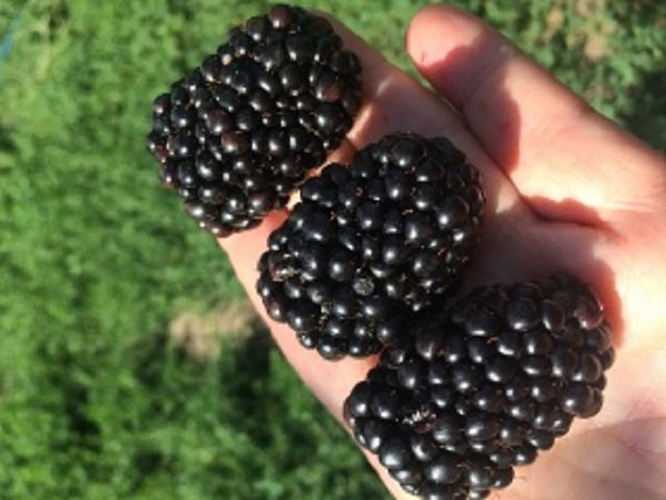I know the argument is that we’ll eat berries or even honey. But I remember being out with a group of male friends in the woods, and we ran across wild blackberry bushes. Did we eat them? Sure. All of them. That is, until next YEAR, there were no more blackberries in this part of the forest.
And even if you live in an area where are tons of blackberries (I’m not sure that such an area exists, though, outside of human cultivation), you have maybe a month to eat them. And you’re competing with many other animals too.
And honey is another thing. Maybe in Africa, you can get a lot of honey, but wherever it has 4 seasons, you basically have a few months at most to get honey. And then to get it, you have to go into a hive of bees who do not like the fact that you’re stealing what they created. We created bee suits for a reason. I mean, how many bees nests can you find, let alone raid during the 1-2 months you have to do so?
Every time it’s winter here in CT, and it’s below freezing, I’m thinking to survive 400 years ago, you’d be eating meat. And that’s basically it. And if you could find fruit or tubers or whatever in the summer/fall, you’d be gorging on those to give you enough fat to survive the brutal winter.


 At least the blackberries around here. Not particularly tasty but sour and I like sour. And they have water, useful on a walk. Not really food. The sweet berries are tiny and hard to get a proper amount of pure flesh for different reasons. But it’s easy to pick some in winter too so there’s that.
At least the blackberries around here. Not particularly tasty but sour and I like sour. And they have water, useful on a walk. Not really food. The sweet berries are tiny and hard to get a proper amount of pure flesh for different reasons. But it’s easy to pick some in winter too so there’s that. Like pemmican, you get meat, fat and some nice sour berries to spice it up
Like pemmican, you get meat, fat and some nice sour berries to spice it up 